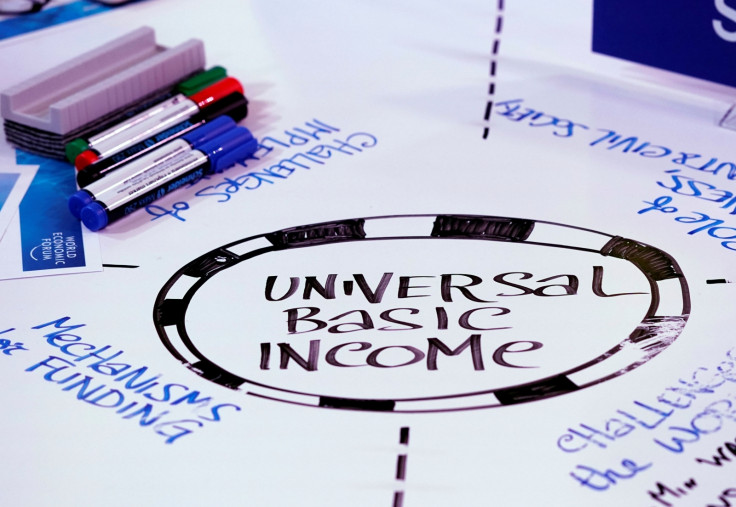£10,000 for everyone under 55: Think tank calls for UK universal basic income fund

KEY POINTS
- Plans are set out in a report by the Royal Society for the encouragement of the Arts, Manufacture and Commerce.
- The society believes the money will help break the poverty cycle.
- Argues that universal basic income will be necessary to protect living standards in the age of automation.
A new report calls on the government to give £10,000 to everyone under 55 years of age as part of a move towards a national universal basic income (UBI).
The Royal Society for the encouragement of the Arts, Manufactures and Commerce (RSA) said the £10,000 "Universal Basic Opportunity Fund" would "address an increasingly concerning reality of people cycling in and out of poverty, being subject to employment and financial insecurity and without adequate opportunities to reconfigure their lives as they wish."
The RSA believes the money would help UK citizens through the 2020s, "as automation replaces many jobs, climate change hits and more people face balancing employment with social care".
Payments would not be means tested and would come from a British sovereign wealth fund in two £5,000 lump sums.
The wealth fund would come from public debt, levies on untaxed corporate assets and investments in long-term infrastructure projects.
The report also says that, as the payments would take the place of most state welfare, the government could invest benefits savings into the sovereign wealth fund.
In total, the society believes the scheme would cost £14.5bn each year and £462bn over 13 years. It expects that more than half of the overall cost would be paid for by government savings.
"If not confronted, forces including automation could become hugely divisive social, economic and political forces further entrenching a dangerous societal schism between those who have security and those who have insecurity," the report warns.
"This is not merely a vision of a dystopian future. In many respects it is already in train and requires action now."
A decade of disruption
Anthony Painter, director of the RSA's Action and Research Centre, said: "The simple fact is that too many households are highly vulnerable to a shock in a decade of disruption, with storm clouds on the horizon if automation, Brexit and an ageing population are mismanaged.
"Without a real change in our thinking, neither tweaks to the welfare state nor getting people into work alone, when the link between hard work and fair pay has broken, will help working people meet the challenges ahead."
MP Jonathan Reynolds, Labour's shadow Treasury minister, said: "This new report from the RSA raises the right questions about the future of work and the long-term challenges we face, including making sure automation and the changing nature of work deliver a fairer, more prosperous society."
Local UBI trials are already ongoing in Scotland, in the cities of Glasgow, Edinburgh, Fife and North Ayrshire.
In Finland, a two-year nationwide pilot scheme is underway, in which 2,000 unemployed citizens are given a monthly income of €560 (£497), which continues even if they find work.
UBI critics have argued that implementing such programmes would be too expensive and a disincentive to work. Opponents also say that in replacing all other state benefits, the poorest in society may end up poorer under UBI schemes.






















